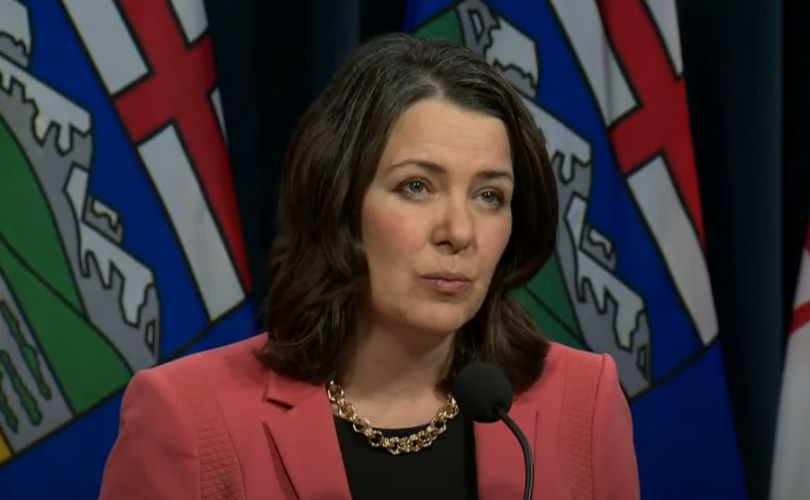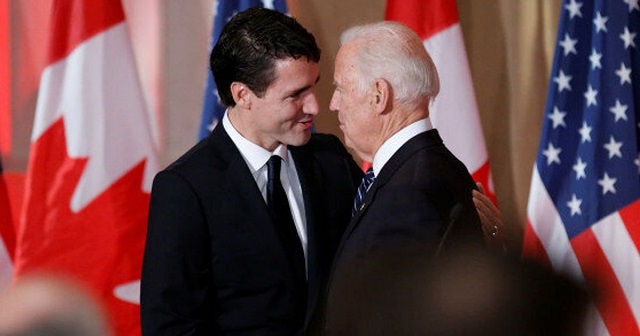Alberta
New Catholic Middle School for Red Deer and new Public High School for Blackfalds may be part of Kenney’s 19 Billion Dollar infrastructure plan

From The Province of Alberta
Infrastructure spending supports economy, jobs
Government’s 2020 Capital Plan spends 19.3-billion tax dollars over three years to deliver the infrastructure Alberta families and communities need.
Alberta’s 2020 Capital Plan provides for key infrastructure projects that will build a prosperous future and keep Albertans working. Over and above what was announced in the last budget, the 2020 Capital Plan will fund new projects worth an estimated $772 million over the next three years. These projects will support more than 3,000 new jobs by 2022.
“We are accelerating an already aggressive Capital Plan with a focus on infrastructure that creates jobs and economic growth. This Capital Plan will make life better for Albertans, improving access to health facilities, schools, roads, and other important infrastructure.”
“With these responsible investments, Alberta-based businesses and the skilled workers they employ will have opportunities to bid on significant provincial projects for the next three years.”
The Government of Alberta will also introduce legislation this fall outlining how it will prioritize and report on capital spending. This will implement a platform commitment to publish a 20-year strategic capital plan.
Quick facts
- Alberta’s 2020 Capital Plan invests in new infrastructure projects, including:
- expansion of the emergency department and mental health unit at Calgary’s Peter Lougheed Centre
- expansion of the Red Deer Regional Hospital Centre
- two new school modernization projects and construction funds for nine school projects which were previously approved in Budget 2019 for design only
- funding for the Bow Reservoir Options Project
- Glenbow Museum in Calgary modernization
- The 2020 Capital Plan continues to support key infrastructure projects, including:
- the new Gene Zwozdesky Centre at Norwood in Edmonton
- Edmonton’s Misericordia Hospital expansion
- school capital projects in various phases of planning, design and construction throughout the province
- Northern Lakes College High Prairie Consolidation
- Edmonton and Calgary ring roads and light rail transit (LRT)
Blackfalds — New high school (9 to 12) for Wolf Creek Public Schools
Red Deer — New middle school (Grades 6 to 9) for Red Deer Catholic Regional Schools
Alberta
Alberta government should eliminate corporate welfare to generate benefits for Albertans

From the Fraser Institute
By Spencer Gudewill and Tegan Hill
Last November, Premier Danielle Smith announced that her government will give up to $1.8 billion in subsidies to Dow Chemicals, which plans to expand a petrochemical project northeast of Edmonton. In other words, $1.8 billion in corporate welfare.
And this is just one example of corporate welfare paid for by Albertans.
According to a recent study published by the Fraser Institute, from 2007 to 2021, the latest year of available data, the Alberta government spent $31.0 billion (inflation-adjusted) on subsidies (a.k.a. corporate welfare) to select firms and businesses, purportedly to help Albertans. And this number excludes other forms of government handouts such as loan guarantees, direct investment and regulatory or tax privileges for particular firms and industries. So the total cost of corporate welfare in Alberta is likely much higher.
Why should Albertans care?
First off, there’s little evidence that corporate welfare generates widespread economic growth or jobs. In fact, evidence suggests the contrary—that subsidies result in a net loss to the economy by shifting resources to less productive sectors or locations (what economists call the “substitution effect”) and/or by keeping businesses alive that are otherwise economically unviable (i.e. “zombie companies”). This misallocation of resources leads to a less efficient, less productive and less prosperous Alberta.
And there are other costs to corporate welfare.
For example, between 2007 and 2019 (the latest year of pre-COVID data), every year on average the Alberta government spent 35 cents (out of every dollar of business income tax revenue it collected) on corporate welfare. Given that workers bear the burden of more than half of any business income tax indirectly through lower wages, if the government reduced business income taxes rather than spend money on corporate welfare, workers could benefit.
Moreover, Premier Smith failed in last month’s provincial budget to provide promised personal income tax relief and create a lower tax bracket for incomes below $60,000 to provide $760 in annual savings for Albertans (on average). But in 2019, after adjusting for inflation, the Alberta government spent $2.4 billion on corporate welfare—equivalent to $1,034 per tax filer. Clearly, instead of subsidizing select businesses, the Smith government could have kept its promise to lower personal income taxes.
Finally, there’s the Heritage Fund, which the Alberta government created almost 50 years ago to save a share of the province’s resource wealth for the future.
In her 2024 budget, Premier Smith earmarked $2.0 billion for the Heritage Fund this fiscal year—almost the exact amount spent on corporate welfare each year (on average) between 2007 and 2019. Put another way, the Alberta government could save twice as much in the Heritage Fund in 2024/25 if it ended corporate welfare, which would help Premier Smith keep her promise to build up the Heritage Fund to between $250 billion and $400 billion by 2050.
By eliminating corporate welfare, the Smith government can create fiscal room to reduce personal and business income taxes, or save more in the Heritage Fund. Any of these options will benefit Albertans far more than wasteful billion-dollar subsidies to favoured firms.
Authors:
Alberta
Official statement from Premier Danielle Smith and Energy Minister Brian Jean on the start-up of the Trans Mountain Pipeline

-

 Education8 hours ago
Education8 hours agoSupport a young reader through the Tim Hortons Smile Cookie campaign
-

 Automotive1 day ago
Automotive1 day agoVehicle monitoring software could soon use ‘kill switch’ under the guise of ‘safety’
-

 Business1 day ago
Business1 day agoWhen politicians gamble, taxpayers lose
-

 Addictions1 day ago
Addictions1 day agoCity of Toronto asks Trudeau gov’t to decriminalize hard drugs despite policy’s failure in BC
-

 COVID-192 days ago
COVID-192 days agoCanada’s COVID vaccine injury program has paid out just 6% of claims so far
-

 Environment2 days ago
Environment2 days agoClimate Alarmists Want To Fight The Sun. What Could Possibly Go Wrong?
-

 Opinion20 hours ago
Opinion20 hours agoClimate Murder? Media Picks Up Novel Legal Theory Suggesting Big Oil Is Homicidal
-

 Bruce Dowbiggin1 day ago
Bruce Dowbiggin1 day agoIt Gets Late Early These Days: Time To Bounce Biden & Trudeau?






